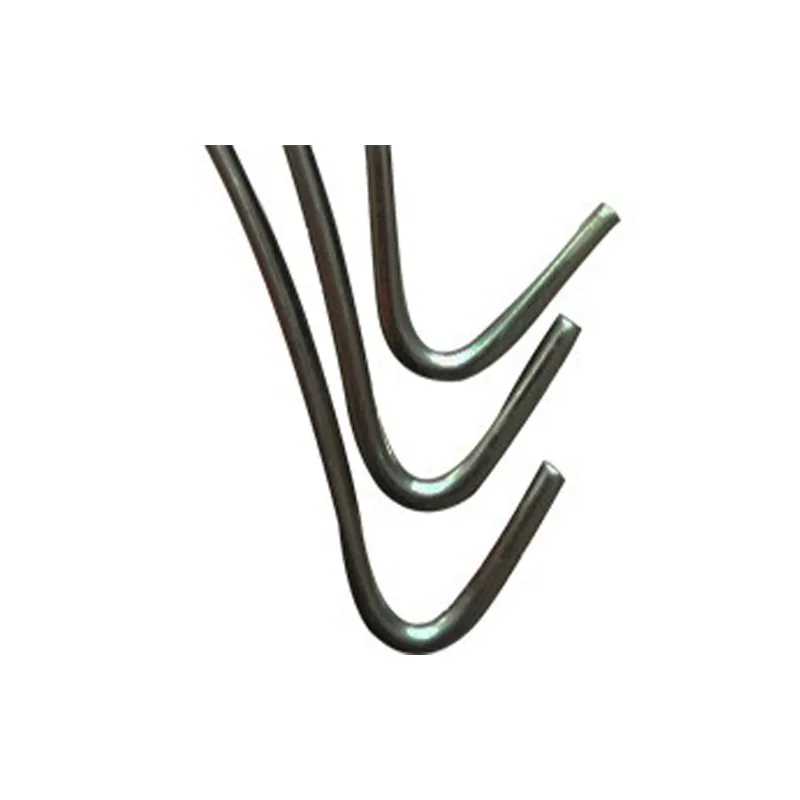-
 Phone:
Phone: -
 Email:
Email:

Does rebar tie wire corrode in different environmental conditions
Does Rebar Tie Wire Rust? Understanding the Implications for Construction Projects
When it comes to the construction of reinforced concrete structures, rebar (reinforcing bar) plays a crucial role in providing the tensile strength needed to withstand various loads and stresses. To hold the rebar in place during the concrete pouring process, tie wire is commonly used. However, a pertinent question arises does rebar tie wire rust, and if so, what are the implications for construction projects?
The Nature of Rebar Tie Wire
Rebar tie wire is typically made from galvanized iron or steel due to their strength and durability. Galvanization involves coating the steel with a layer of zinc, which acts as a barrier against moisture and corrosive elements. This process is essential because unprotected steel will corrode when exposed to environmental factors like water and air. Understanding whether tie wire rusts is crucial for ensuring the longevity and integrity of constructed structures.
Does Rebar Tie Wire Rust?
Yes, rebar tie wire can rust, but the rate and severity of rusting depend on several factors
1. Material Composition As previously mentioned, galvanized tie wire is designed to resist corrosion. However, if the zinc coating is damaged or worn away, exposure to moisture can lead to rust formation on the underlying steel. Non-galvanized tie wire is particularly susceptible to rusting, especially in damp or marine environments.
2. Environmental Conditions The likelihood of rusting increases in humid, salty, or acidic environments. Areas near oceans or industrial sites often have higher levels of corrosive agents that can accelerate rusting. Similarly, if the construction site is in a region with consistent rain or high humidity, the risk of rust increases.
3. Time Over time, even galvanization can deteriorate, especially if the wire is exposed to harsh weather conditions. This can lead to the eventual rusting of the tie wire, which compromises its structural integrity.
Implications of Rusting Tie Wire
The rusting of rebar tie wire can have several implications for construction projects
does rebar tie wire rust

1. Structural Integrity Rust weakens the tie wire, potentially leading to failures in the reinforcement system. If the tie wire fails before or during the curing of the concrete, the positioning of the rebar may be compromised, impacting the overall strength and stability of the structure.
2. Cost Implications If rusting occurs, construction projects may incur additional costs related to repairs, replacements, or even complete reconstruction. It is essential to factor in the long-term performance of tie wire when estimating project budgets.
3. Safety Concerns A failure in the tie wire could lead to accidents on the construction site, posing significant risk to workers' safety. Ensuring that all materials used are of high quality and suitable for the project's environmental conditions is critical.
Preventative Measures
To mitigate the risks associated with rusting tie wire, several preventative measures can be employed
1. Use High-Quality Materials Opting for galvanized tie wire or wire made from corrosion-resistant alloys can greatly reduce the risk of rust. Always verify the specifications before use to ensure they meet industry standards.
2. Proper Installation Ensuring that the tie wire is installed correctly can help protect it from environmental exposure. Avoiding areas prone to moisture accumulation and implementing drainage solutions can also aid in reducing rust risk.
3. Regular Inspections Periodic checks during construction can help identify any signs of rust or damage early. This allows prompt remedial measures to be taken, safeguarding structural integrity.
Conclusion
In conclusion, while rebar tie wire can rust, understanding its properties and environmental influences allows for effective management of risks associated with its use. By selecting the right materials and taking preventative measures, construction professionals can ensure the strength and longevity of reinforced concrete structures. As with any aspect of construction, proactive planning and quality control are key to avoiding the pitfalls of rust and ensuring structural success.
-
Wire Mesh for Every Need: A Practical SolutionNewsJul.25,2025
-
Steel Fences: Durable, Secure, and Stylish OptionsNewsJul.25,2025
-
Roll Top Fencing: A Smart Solution for Safety and SecurityNewsJul.25,2025
-
Cattle Farm Fencing Solutions for Maximum SecurityNewsJul.25,2025
-
Affordable Iron Binding Wire SolutionsNewsJul.25,2025
-
Affordable Galvanized Wire SolutionsNewsJul.25,2025
-
Wire Hanger Recycling IdeasNewsJul.25,2025








